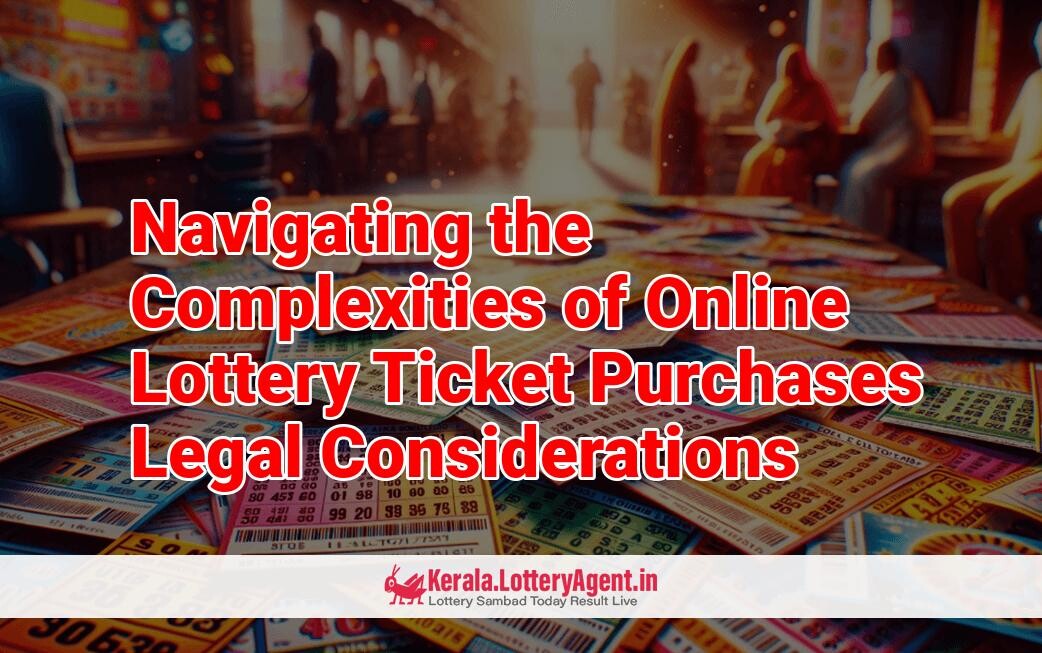
The concept of purchasing lottery tickets has undergone a transformation thanks to the internet, drawing millions of participants from across the globe to the allure of convenience and expanded game choices. The ability to play from virtually any location is undoubtedly appealing; however, potential players must first verify the legality of engaging in online lottery transactions before reaching for their digital wallets.
Legislation regarding online lottery sales is not uniform and varies dramatically depending on one’s location. Some countries fully embrace the online lottery, allowing their residents to participate freely, while in other areas the practice is restricted or outright forbidden. Our experts have crafted a comprehensive guide to the legal intricacies of online lottery ticket purchases to arm potential players with the critical information necessary to navigate this complex landscape.
The United States’ stance on online lotteries has shifted over time. Historically, the 1961 Wire Act prohibited the online sale of lottery tickets. However, a pivotal moment occurred in 2011 when the United States Department of Justice opined that the Wire Act’s restrictions were applicable solely to sports betting. This clarification paved the way for individual states to consider legalizing online lottery ticket sales.
Globally, the situation is equally varied. Certain countries have banned lotteries in all forms, including online sales, while others have established legal frameworks that specifically authorize online lottery participation. A handful of nations still lack clear regulations pertaining to this arena, leaving the status of online lotteries ambiguous within their jurisdictions.
A comprehensive list reveals where online lotteries are both legal and popular, featuring diverse countries such as France, Germany, Italy, Canada, and Australia, among others. Notably absent are certain nations that have opted to outlaw online lottery sales or impose strict licensing requirements for operation.
The intricacies of playing the lottery online from another country or state merit careful consideration. Checking local laws is essential for those residing outside of countries with clear legislation on online lotteries. In the United States, although most states recognize the legality of lotteries, the convenience of online ticket purchasing is not universally available. Regulation varies, and where online purchases are permitted, residents can often buy tickets for popular games like Powerball or MegaMillions.
Technological solutions, such as the JackPocket app, seek to streamline the online lottery experience by aggregating multiple lotteries into a single, accessible platform. Still, players must remain vigilant regarding the ever-changing legal frameworks that govern online lottery sales.
Winning the lottery online comes with its own set of financial considerations, particularly where taxes are concerned. U.S. residents who score lottery prizes in states other than their own are subject to both federal and state tax withholdings. For international winners, a 30% federal tax applies in the U.S., although tax treaties between the U.S. and certain countries may offer exemptions.
Despite these legal complexities, the online lottery landscape teems with activity and a vast array of available games. Platforms routinely offer globally popular lotteries, leading certain draws to sell an impressive number of tickets. For instance, famous lotteries like US Powerball and EuroMillions continue to captivate audiences with the promise of life-changing fortunes.
For those fortunate enough to win, the process of withdrawing funds can be navigated through a selection of payment methods provided by online lottery platforms. From e-wallet options to direct bank transfers, players can choose the most convenient route, keeping in mind the transaction fees applicable to each method.
While the thrill of the lottery beckons, it is accompanied by risks inherent to online transactions. The internet harbors various scams, making it imperative for lottery enthusiasts to exercise discernment in selecting reputable websites, protect their personal and financial data, and ensure their devices are secure from viruses and malware.
In summary, the global phenomenon of online lotteries presents players with the enticing prospect of easy access to a medley of games from the comfort of their homes. However, it is accompanied by a labyrinth of legal considerations and financial implications. Aspiring participants would do well to conduct thorough research, remain abreast of evolving regulations, and approach the digital lottery domain with caution and informed decision-making.











